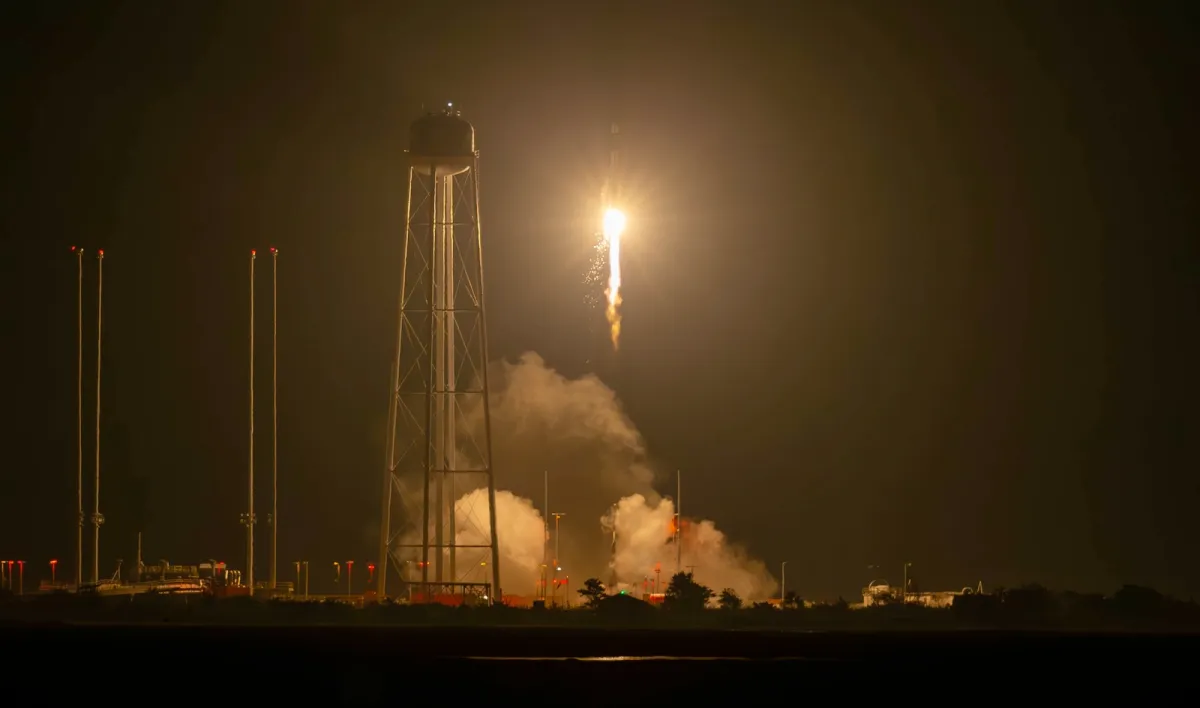Rocket Lab’s 40th mission begins with a reusable engine
- August 27, 2023
- 0
Private space company Rocket Lab launched its 40th Electron mission aboard the much-lauded Electron rocket called We Love Nightlife on August 24 at 11:45 NZT (23 August 7:45
Private space company Rocket Lab launched its 40th Electron mission aboard the much-lauded Electron rocket called We Love Nightlife on August 24 at 11:45 NZT (23 August 7:45

Private space company Rocket Lab launched its 40th Electron mission aboard the much-lauded Electron rocket called We Love Nightlife on August 24 at 11:45 NZT (23 August 7:45 PM ET). This also means the 7th launch in 2023. all successful. The mission’s goal was to place Capella Space’s next-generation Acadia satellite in a perfectly circular orbit above Earth at an altitude of 640 km (400 mi). Acadia is part of the Capella Synthesized Aperture Radar (SAR) constellation and is the first of four contracted Acadia satellites to be launched by Rocket for Capella.
“We have been a trusted launch partner of Capella since 2020 and we are excited to once again achieve mission success,” said Peter Beck, CEO and founder of Rocket Lab. “Electron has played a critical role in helping constellation operators like Capella deploy their spacecraft on time and on target, and we look forward to continuing to build the Capella constellation with more special launches this year.”
After a successful launch, Rocket Lab crews successfully retrieved the Electron first stage launch vehicle from the Pacific Ocean while parachuting after stage separation. This was the sixth time Rocket Lab has successfully removed a booster from the ocean, and the third successful recovery in 2023. Rocket Lab has only tried to recover the booster a few times, but that number seems to increase as they get three boosters. in three attempts this year. The purpose of salvaging launch vehicles is to increase rocket reusability in order to reduce launch costs.
This latest mission, in addition to increasing the reusability of the Electron rocket, also marked Rocket Lab’s first attempt to reuse one of its 3D-printed Rutherford engines that worked flawlessly with the other nine Rutherford first-stage Electron engines. Rocket Lab posted a pre-launch image of the nine engines on its X (formerly Twitter) account; The reused engine stood out from the crowd thanks to its darker colour.
Previous Rocket Lab launches for Capella Space include the I Can’t Believe It’s Not Optical mission in August 2020 and the Monger Together » » mission, which sent the Sequoia Earth-imaging satellite into a 500-kilometer (310-mile) low orbit. In March 2023, it delivered the Capella 9 and Capella 10 satellites to low Earth orbit at an altitude of 600 km (375 mi). As noted, this latest mission was the first of four launches of the Acadia satellite, and the remaining three missions are scheduled to launch by the end of 2023.
Founded in New Zealand in 2006, Rocket Lab aims to deliver payloads to space using low-cost launch vehicles, following in the footsteps of the private space company SpaceX, founded in 2002. To achieve this, Rocket Lab produced the expendable and now partially reusable Electron rocket, which had its first successful launch in January 2018 after a failed first launch attempt in May 2017. All launches took place in New Zealand until January 2023, when Rocket Lab made its first launch from American soil at NASA’s Wallops Air Force Base in Virginia.
As this latest launch demonstrates, the Electron has proven to be both a successful and reliable launch vehicle for Rocket Lab. However, Peter Beck’s private rocket company is currently working on an upgraded and fully reusable Neutron rocket capable of carrying up to 15,000 kilograms (33,000 lb) into low Earth orbit, depending on launch configuration. In terms of context, the Electron can launch a maximum of 300 kilograms (660 pounds) into low Earth orbit and, as mentioned, is only partially reusable. Like the Electron, the Neutron will use nine first-stage engines, called Archimedes, and will have much higher launch thrust. Neutron is currently under development and its first launch is scheduled for 2024. Source
Source: Port Altele
As an experienced journalist and author, Mary has been reporting on the latest news and trends for over 5 years. With a passion for uncovering the stories behind the headlines, Mary has earned a reputation as a trusted voice in the world of journalism. Her writing style is insightful, engaging and thought-provoking, as she takes a deep dive into the most pressing issues of our time.